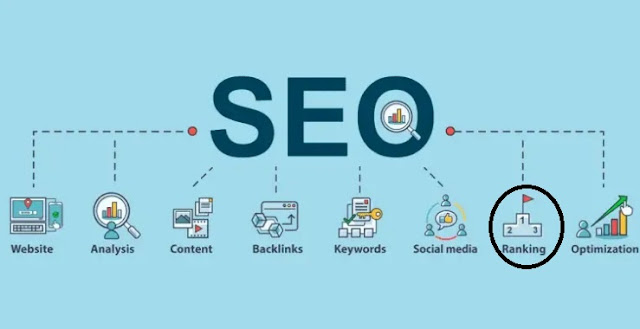In today's digital age, having a website is no longer enough to attract and retain customers. With billions of websites out there, how do you ensure your website stands out from the crowd?
That's where SEO comes in. Search Engine Optimization (SEO) is the process of optimizing your website to rank higher in search engine results pages (SERPs). But with so many websites vying for top positions, basic SEO techniques are no longer enough.
To truly succeed in SEO, you need to master advanced SEO techniques. In this blog post, we'll take a look at some advanced SEO techniques that can help you stay ahead of the competition.
- Comprehensive keyword research: Keyword research is the foundation of any SEO campaign. But basic keyword research is no longer enough. To truly succeed in SEO, you need to conduct comprehensive keyword research. This means analyzing search intent, identifying long-tail keywords, and prioritizing keywords based on their potential to drive traffic and conversions.
- Create high-quality content: Creating high-quality content is no longer optional. Google's algorithms are becoming increasingly sophisticated, and they can now detect low-quality content. To succeed in SEO, you need to create content that is not only informative but also engaging and shareable. This means using multimedia elements like images and videos, as well as crafting compelling headlines and introductions.
- Optimize for featured snippets: Featured snippets are the boxed-in answers that appear at the top of search engine results pages. Optimizing for featured snippets can help you increase your visibility and drive more traffic to your website. To optimize for featured snippets, you need to identify the questions your target audience is asking, and craft content that provides concise answers to those questions.
- Optimize for voice search: With the rise of voice assistants like Siri and Alexa, optimizing for voice search is becoming increasingly important. Voice search queries tend to be longer and more conversational, so you need to optimize your content for natural language queries. This means using long-tail keywords and answering questions in a conversational tone.
- Leverage social media: Social media can be a powerful tool for driving traffic and increasing brand awareness. But to succeed in SEO, you need to leverage social media strategically. This means sharing your content on social media, building backlinks from social media, and engaging with your followers to build your brand's authority.
- Build high-quality backlinks: Backlinks are links from other websites that point to your website. Google considers backlinks to be a vote of confidence in your website's authority and relevance. But not all backlinks are created equal. To succeed in SEO, you need to build high-quality backlinks from authoritative websites in your niche. This means guest posting on relevant websites, earning editorial links from news sites, and leveraging broken link building strategies.
- Optimize for local search: If you have a local business, optimizing for local search can be a game-changer. Local search refers to the process of optimizing your website to rank higher in local search results. To optimize for local search, you need to create a Google My Business profile, optimize your website for local keywords, and build citations (mentions of your business name, address, and phone number) on local directories and review sites.
- Monitor and analyze your data: To truly succeed in SEO, you need to be data-driven. This means monitoring and analyzing your website's performance using tools like Google Analytics and Google Search Console. By analyzing your data, you can identify areas for improvement, track your progress over time, and make data-driven decisions about your SEO strategy.
- Optimize for mobile: With more and more people accessing the internet on their mobile devices, optimizing for mobile is no longer optional. Google now uses mobile-first indexing, which means it primarily uses the mobile version of your website to determine its relevance and ranking. To optimize for mobile, you need to ensure your website is mobile-friendly, with a responsive design and fast loading times.
In summary, mastering advanced SEO techniques requires a comprehensive approach that encompasses keyword research, high-quality content creation, optimizing for featured snippets and voice search, building high-quality backlinks, optimizing for local search, monitoring and analyzing data, and optimizing for mobile. By embracing these advanced techniques, you can stay ahead of the competition and drive more traffic and conversions to your website.
